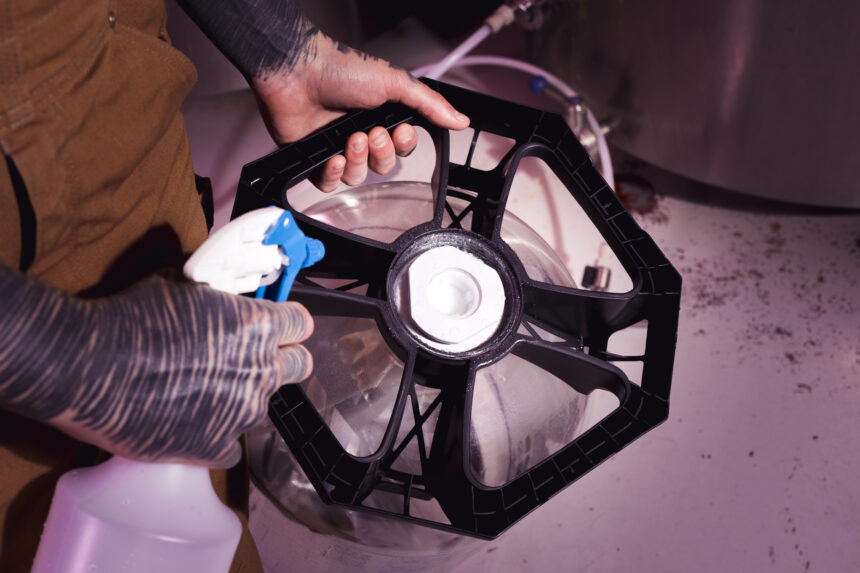Auto odor eliminator Unpleasant odors in your car can be frustrating and embarrassing, whether caused by lingering food smells, pet odors, or environmental factors. Auto odor eliminators are designed to combat these issues effectively, keeping your vehicle smelling fresh and clean. In this comprehensive guide, we’ll explore everything you need to know about auto odor eliminators, their types, how they work, and tips for maintaining a fresh-smelling car.
What Are Auto Odor Eliminators?
Auto odor eliminators are products designed to remove unwanted odors from vehicles. Unlike air fresheners that only mask smells, many odor eliminators neutralize or absorb the odors at their source, ensuring long-lasting freshness.
Why Are Odors in Cars Common?
- Closed Environment: Cars often remain closed for extended periods, creating a breeding ground for odors.
- Daily Activities: Eating, smoking, or carrying pets in the car can introduce and trap odors.
- Environmental Factors: Moisture, dirt, or mold growth can also contribute to unpleasant smells.
Types of Auto Odor Eliminators
Auto odor eliminators come in various forms, each with unique benefits and applications.
1. Spray-Based Odor Eliminators
- How They Work: Spray directly onto affected surfaces to neutralize odors.
- Pros: Quick and easy application, ideal for spot treatments.
- Cons: May require frequent reapplication for persistent odors.
2. Gel and Solid Odor Absorbers
- How They Work: Absorb and neutralize odors over time through passive diffusion.
- Pros: Long-lasting and low-maintenance.
- Cons: Limited effectiveness in larger vehicles.
3. Activated Charcoal Bags
- How They Work: Charcoal naturally absorbs moisture and odors, making it a chemical-free solution.
- Pros: Eco-friendly, reusable, and safe for all vehicle types.
- Cons: May take longer to eliminate strong odors.
4. Ozone Generators
- How They Work: Produce ozone gas that reacts with odor-causing molecules, breaking them down.
- Pros: Highly effective for tough odors like smoke or mildew.
- Cons: Expensive and requires proper handling for safety.
5. Scented Air Fresheners with Odor Neutralizers
- How They Work: Combine pleasant scents with odor-neutralizing agents to refresh the air.
- Pros: Convenient and affordable.
- Cons: May not completely eliminate strong odors.
How Do Auto Odor Eliminators Work?
Understanding the mechanisms behind odor eliminators can help you choose the right product for your needs.
Neutralization
Some products use chemical reactions to neutralize odor molecules, rendering them odorless.
Absorption
Materials like activated charcoal or baking soda absorb odors by trapping the molecules in their porous structure.
Oxidation
Ozone generators oxidize and break down odor-causing compounds, effectively neutralizing them.
Masking with Fragrances
While not true eliminators, some products use strong fragrances to overpower odors temporarily.

Factors to Consider When Choosing an Auto Odor Eliminator
1. Type of Odor
Identify the source of the smell to select the most effective solution. For example:
- Smoke odors: Opt for ozone generators or activated charcoal.
- Pet odors: Enzyme-based sprays work well.
- Mold or mildew: Use moisture-absorbing products like silica gel.
2. Duration of Effectiveness
Some products, like sprays, offer quick results but require frequent use. Others, such as charcoal bags, provide long-term solutions.
3. Safety and Environmental Impact
Consider eco-friendly and non-toxic options, especially if children or pets frequently travel in the vehicle.
4. Cost and Maintenance
Evaluate the cost of the product and whether it requires replacement or recharging, such as in the case of charcoal bags or ozone generators.
Step-by-Step Guide to Using Auto Odor Eliminators
1. Identify the Odor Source
Locate the origin of the smell, such as spilled food, wet carpets, or smoke residue, and address it directly.
2. Clean the Vehicle
Before using an odor eliminator, vacuum the car, wash the upholstery, and wipe down hard surfaces. This step helps remove odor-causing particles.
3. Apply the Odor Eliminator
- Sprays: Target affected areas, such as seats, carpets, and air vents.
- Charcoal Bags: Place them in strategic locations, like under seats.
- Ozone Generators: Follow the manufacturer’s instructions and ensure the car is unoccupied during use.
4. Ventilate the Car
After treating the vehicle, open windows or doors to air it out, especially if using strong chemicals or ozone.
5. Maintain Regular Cleaning
Prevent odors from returning by cleaning your car regularly and using preventative products like moisture absorbers.
DIY Alternatives to Commercial Auto Odor Eliminators
1. Baking Soda
Sprinkle baking soda on carpets and upholstery, let it sit for a few hours, and vacuum it up to absorb odors.
2. White Vinegar
Leave a bowl of white vinegar in the car overnight to neutralize strong smells.
3. Coffee Grounds
Coffee grounds can absorb odors and leave behind a mild, pleasant aroma.
4. Essential Oils
Mix a few drops of essential oils with water in a spray bottle for a natural and customizable air freshener.
Common Odors and How to Eliminate Them
1. Smoke
- Use ozone generators or specialized smoke odor sprays.
- Deep clean upholstery and carpets to remove embedded smoke particles.
2. Pet Odors
- Clean fur and drool from surfaces regularly.
- Use enzyme-based cleaners to break down organic stains.
3. Mold and Mildew
- Address moisture issues by drying wet areas and using silica gel or moisture absorbers.
- Clean affected surfaces with vinegar or a mildew remover.
4. Food Spills
- Remove spills promptly and clean with a mild detergent.
- Use odor-neutralizing sprays to eliminate lingering smells.
Tips for Maintaining a Fresh-Smelling Car
1. Keep It Clean
Regularly vacuum and wipe down surfaces to prevent dirt and grime buildup.
2. Address Spills Immediately
Quick action prevents odors from becoming deeply embedded in fabrics.
3. Use Preventative Products
Place charcoal bags or moisture absorbers in your car to tackle odors before they develop.
4. Avoid Eating in the Car
Minimize food odors by avoiding meals in your vehicle whenever possible.
Conclusion
Auto odor eliminators are essential for maintaining a clean, pleasant driving experience. Whether you choose sprays, charcoal bags, or advanced ozone generators, the right product can make a world of difference in eliminating odors effectively. By combining these solutions with regular cleaning and maintenance, you can keep your car smelling fresh for years to come.
Frequently Asked Questions (FAQs)
1. How do I choose the best auto odor eliminator for my car?
Consider the type of odor, the product’s effectiveness, safety, and ease of use. For strong odors like smoke, ozone generators or activated charcoal work well.
2. Are natural odor eliminators effective?
Yes, natural solutions like baking soda, vinegar, and activated charcoal are effective for many common odors and are environmentally friendly.
3. Can I use household air fresheners in my car?
Household air fresheners can mask odors but may not eliminate them. Auto-specific products are often more effective for tackling the unique challenges of a car’s environment.
4. Is it safe to use ozone generators in my car?
Ozone generators are effective but must be used with caution. Follow the manufacturer’s instructions, and ensure the vehicle is unoccupied during use.
5. How can I prevent odors in the first place?
Maintain a clean car, address spills and moisture promptly, and use preventative products like moisture absorbers or charcoal bags to keep odors at bay.
With the right tools and strategies, you can enjoy a fresh, odor-free car every time you get behind the wheel!


